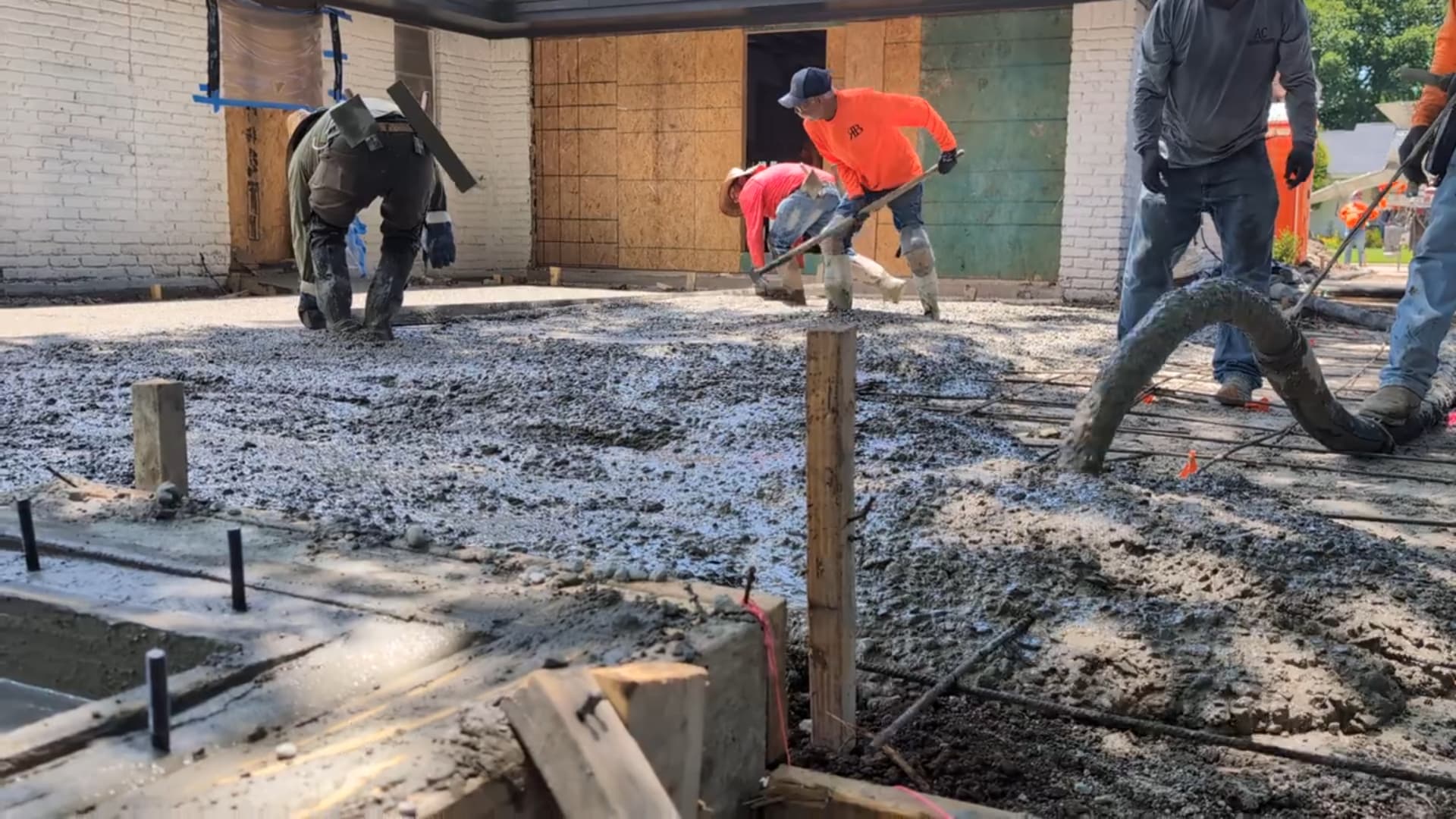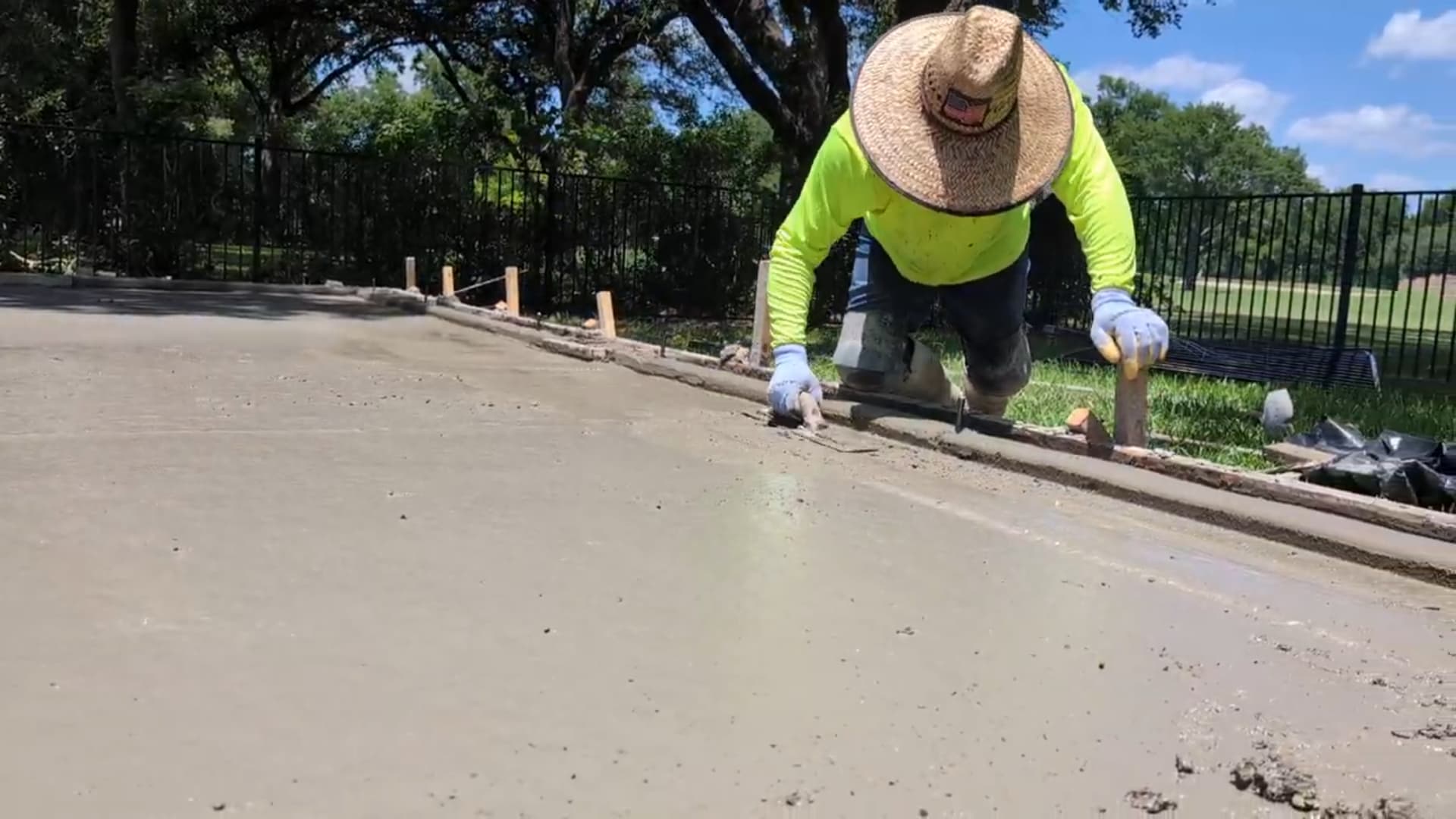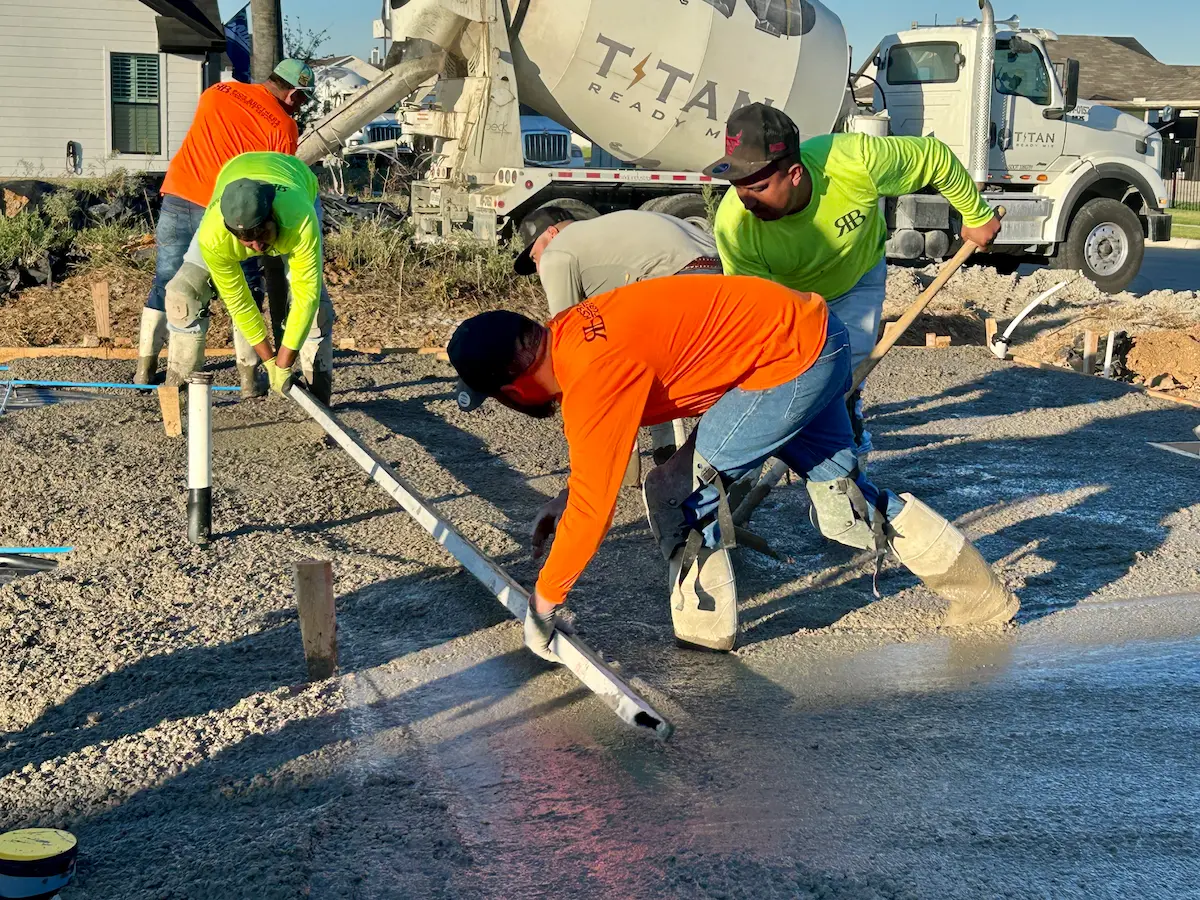
What Is the Downside of a Concrete Driveway (and How to Avoid It)?
Concrete driveways are a popular choice for homeowners across Weatherford, Dallas, and Fort Worth, TX. They’re durable, low-maintenance, and offer a clean, modern look that enhances curb appeal. But like any building material, concrete isn’t perfect. Understanding the downsides and how to prevent them can help you make smarter decisions about your home’s exterior.
In this guide from Rios Brothers Concrete Services, we’ll break down the potential problems with concrete driveways and offer practical, expert-approved solutions to keep your investment strong for years.
What Is a Concrete Driveway?
A concrete driveway is a paved surface made from a mixture of cement, water, sand, and gravel (known as concrete) that is poured and leveled to form a solid, durable path for vehicles. Once cured, it creates a hard, flat surface that can support the weight of cars, trucks, and SUVs for decades.
Why It’s Popular
Concrete is one of the most common driveway materials in Weatherford, Dallas, and Fort Worth, TX, for several reasons:
- Durability: With proper installation, a concrete driveway can last 25–40 years or more.
- Low Maintenance: Compared to gravel or asphalt, concrete requires minimal upkeep.
- Clean Appearance: Its smooth, light-gray finish gives homes a modern, polished look.
- Customizable: It can be stamped, stained, or broom-finished for visual variety.
However, despite its benefits, a concrete driveway isn’t without its challenges, and understanding those potential downsides is essential before installation.
1. Cracking: The Most Common Issue
Why It Happens
Cracks in concrete are nearly inevitable over time, especially in areas such as Weatherford and Fort Worth, where the soil is clay-heavy and prone to expansion and contraction. Some cracks are purely cosmetic, while others may indicate more serious structural issues.
Contributing Factors
- Improper sub-base compaction
- Tree roots
- Heavy vehicle loads
- Freeze-thaw cycles
- Poor control of the placement
Scientific Insight
According to the American Concrete Institute (ACI), most cracks occur due to shrinkage during curing, thermal contraction, or external stress (ACI 224R-01).
How to Avoid It
- Hire experienced concrete contractors near you who understand local soil conditions
- Add control joints at proper intervals
- Use reinforced rebar or wire mesh
- Consider fiber-reinforced concrete for added durability
2. Staining and Discoloration
What Causes It
Oil leaks, tire marks, rust from metal patio furniture, and even decaying leaves can leave lasting stains on your concrete driveway.
Why It’s a Problem
- Affects curb appeal
- Some stains (like oil) can weaken the concrete surface over time
- Difficult and expensive to remove without the proper equipment
How to Prevent It
- Seal the concrete every 1–3 years
- Clean up spills immediately
- Pressure wash periodically to remove surface grime
3. Surface Scaling and Spalling
What It Looks Like
Surface flaking or pitting, sometimes revealing the aggregate beneath, is often caused by water penetrating the surface and freezing.
Contributing Factors
- De-icing salts
- Improper finishing techniques
- Poor concrete mix
Regional Warning
In the Dallas-Fort Worth area, sudden temperature drops can cause water inside concrete pores to freeze and expand, leading to surface deterioration.
How to Minimize It
- Use air-entrained concrete mixes in colder months
- Avoid de-icing salts, especially in the first winter
- Seal your driveway to keep water out
4. Freeze-Thaw Damage in North Texas Winters
Why It’s Unique
While North Texas isn’t known for harsh winters, the few freezes that do occur can cause significant damage. The problem arises when moisture in the concrete expands as it freezes.
Symptoms
- Cracking
- Pitting
- Uneven slabs
Protective Measures
- Opt for a concrete mix designed for freeze-thaw resistance.
- Ensure proper slope to prevent water pooling.
- Seal the surface annually.
5. Concrete Driveways and Drainage Problems
Why It Matters
Improper slope or grading can cause water to pool on the driveway or run back toward your home’s foundation.
Potential Consequences
- Slippery surfaces
- Water intrusion into the home
- Erosion of the sub-base under the driveway
How to Avoid
- Make sure your concrete contractor includes a proper slope (typically 2%)
- Add drainage channels or French drains where needed.
- Grade the surrounding landscaping correctly.
6. Long Curing Time and Installation Delays
Did You Know?
Concrete doesn’t “dry”; it cures through a chemical reaction. This process takes at least 7 days to reach 70% strength and 28 days to heal fully.
Downsides
- You can’t park on it immediately
- Walking may be restricted for 24–48 hours
- Cold or wet weather can slow curing
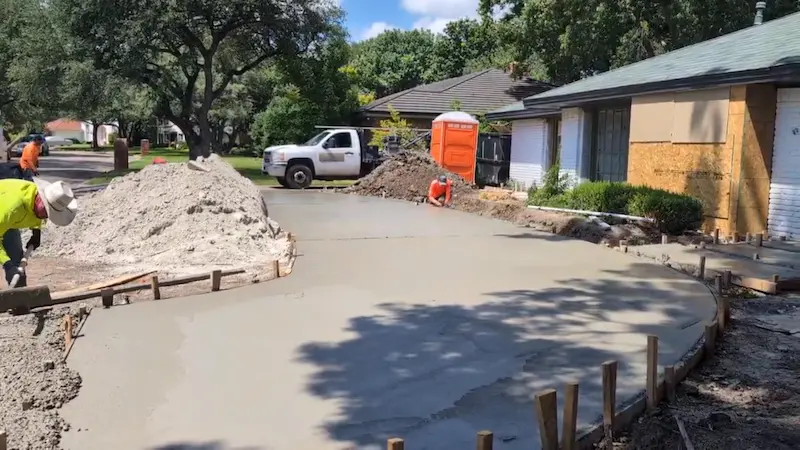
Mitigation Tips
- Plan your project around the weather forecast
- Use curing compounds to retain moisture.
- Allow for buffer time in your construction schedule.
7. Cost: Not Always Budget-Friendly
Why It’s Expensive
Compared to asphalt or gravel, concrete has higher upfront costs. These costs can be affected by:
- Site preparation
- Reinforcement materials
- Custom finishes or colors
Long-Term Perspective
Despite the initial cost, concrete often lasts 30 years or more with minimal upkeep, potentially saving you money over time.
Budget-Smart Tip
Obtain multiple quotes from concrete companies near you to compare not only price but also value-added services, such as grading, sealing, and warranties.
8. Tips to Avoid These Issues
Here’s a checklist for preventing the most common concrete driveway problems:
| Problem | Prevention Tip |
| Cracking | Proper base prep, reinforcement, and control joints |
| Stains | Regular cleaning, sealing |
| Scaling | Avoid de-icing salts, use a proper mix |
| Freeze-thaw | Use air-entrained concrete, and seal regularly |
| Drainage | Ensure proper slope, install drains |
| Cost | Compare quotes, plan for long-term durability |
| Curing delays | Time your pour right, apply curing agents |
9. When to Call a Professional
DIY concrete may seem cost-effective, but mistakes can result in thousands of dollars in long-term costs. For projects like driveways, where structural integrity and precision are crucial, it’s best to hire a trusted professional.
Choose a Contractor Who
- Has experience with driveway concrete in North Texas
- Offers warranties
- Can handle grading and drainage
- Uses local materials for compatibility
Looking for concrete contractors near you who check all these boxes? That’s where we come in.
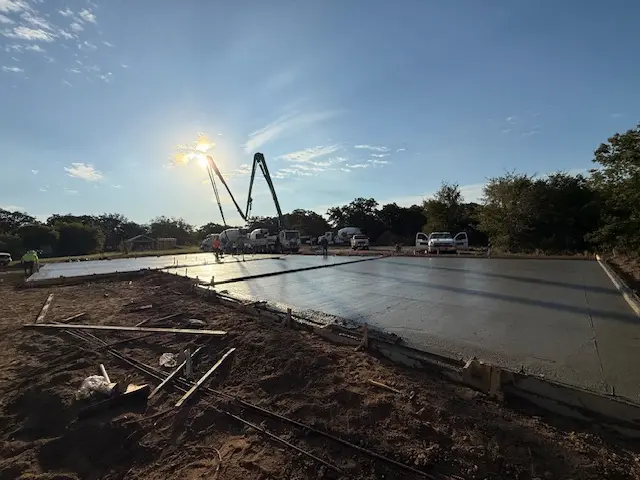
Build Smarter with Rios Brothers Concrete Services
Concrete driveways offer long-lasting performance and visual appeal, but only if they’re done right. Now that you understand the downsides and how to avoid them, you’re ready to make a more intelligent decision for your home.
At Rios Brothers Concrete Services, we specialize in driveway installations throughout Weatherford, Dallas, and the Greater Fort Worth area, TX. With a focus on quality craftsmanship, local soil knowledge, and honest pricing, we help homeowners build durable driveways that look great and last for decades.
Ready to pour the perfect driveway? Visit us at www.riosbros.com or check out our latest tips on the blog
Let’s build something solid, together.

